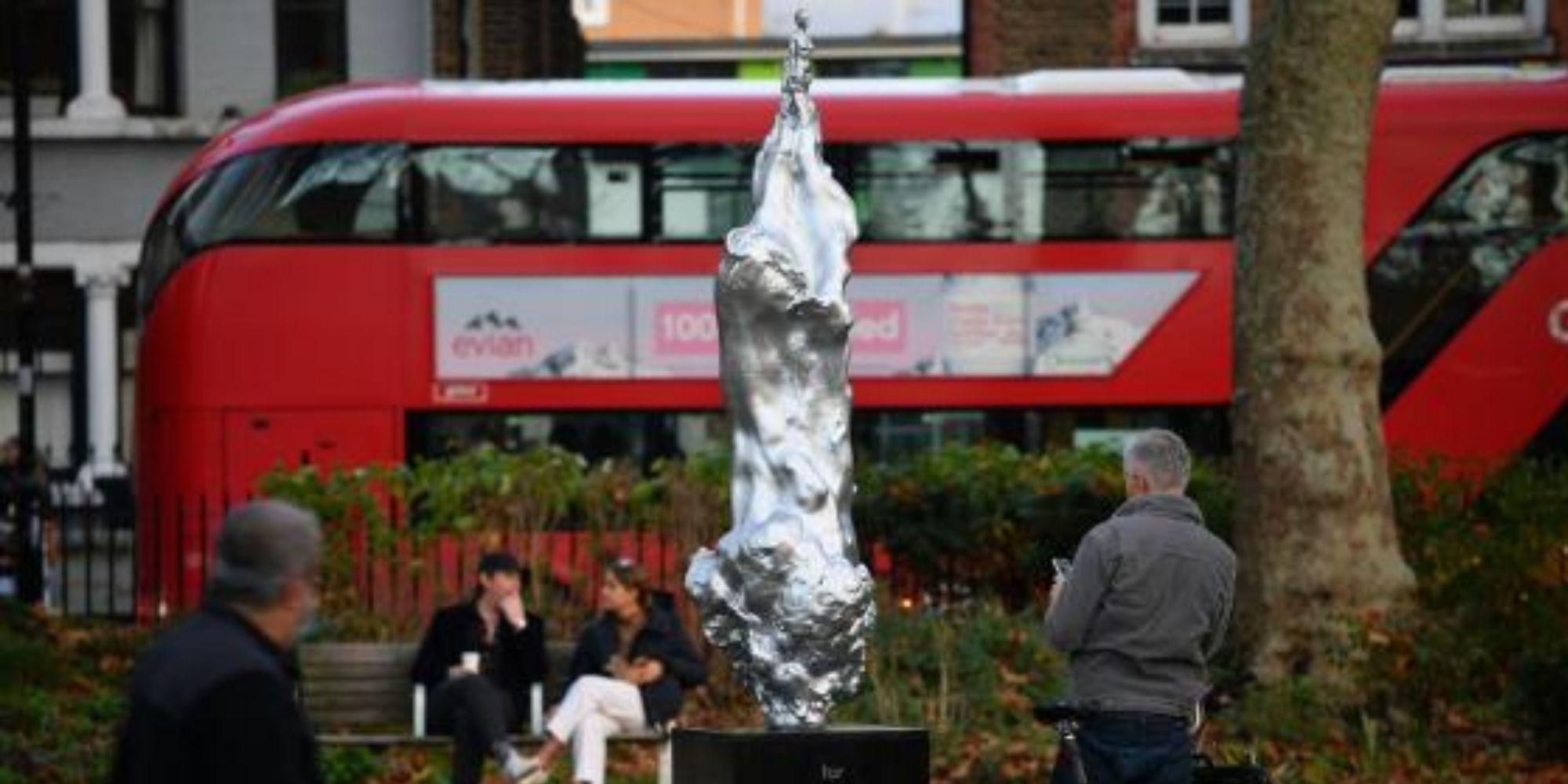Posted 1 day ago by Isobel van Hagen

Getty
A memorial honouring the groundbreaking English philosopher and women’s rights advocate Mary Wollstonecraft was 200 years in the making – although very few were actually pleased with how it turned out.
Known as the ‘mother of feminism’, the 18th century writer is perhaps most well-known for her 1790 work A Vindication of the Rights of Woman. And so a sculpture marking her historical significance was finally unveiled on Tuesday in London, and its creators faced almost immediate criticism on social media.
The new silvery naked sculpture – a product of the 'Mary on The Green' campaign – prompted critics to call it 'sexist', 'insulting' and 'demeaning', asking why it did not directly depict Wollstonecraft and, specifically, why she had been 'reduced to a sex object'.
The uproar comes from a lack of awareness about objectifying representations of women as only 'sexy' bodies, something Wollstonecraft spent her life trying to draw attention to.
Feminist activist and author Caroline Criado-Perez, who played a key role in the campaign to erect a statue of women's suffragist Millicent Fawcett, called the artwork “a colossal waste” and “disrespectful to Wollstonecraft herself”.
Writer Tracy King, who was also involved in the Millicent Fawcett campaign, agreed: “It’s a shocking waste of an opportunity that can’t be undone. But hey, tits!”
Others were quick to note that famous male authors are never represented without clothes: “I’ve seen many statues of male writers, rights activists and philosophers and I can’t remember any of them being bare-assed.” One person said.
The artist Maggi Hambling defended her decision to depict Wollstonecraft without clothing, saying that people had "missed the point".
She explained the statue was meant to represent “everywoman” and clothes would have restricted her to a time and place, according to the Evening Standard.
But she added: “As far as I know, she’s more or less the shape we’d all like to be.” It hasn't gone down well
Bee Rowlatt, chairwoman of the 'Mary on the Green' campaign, also came to the statue’s defence saying: "This work is an attempt to celebrate her contribution to society with something that goes beyond the Victorian traditions of putting people on pedestals."
Prominent social commentator Mona Eltahawy refused this notion completely, saying: “Nudity is not the issue. What is being conveyed and for whose gaze is. Why, after years of so few statues of women, is the naked female form of statues being erected for & about women?”
Even so, some were in fact happy about the memorial, calling it 'epic' and 'radical'.
Historian Dr Fern Riddell explained her positive perspective on Twitter:
"I love it because to me it’s a massive combination of themes, I love the water like a raging wave, I like the mechanical aspect of the figure, it reminds me of how women are created in images that never match their thoughts," she wrote
But mostly, people were just confused to the point of hilarity.
As writer Hannah Jane Parkinson said, "I am genuinely crying with laughter at the new Hambling statue of Mary Wollstonecraft. The disrespect...I don't even know where to start."
SEE THE ARTICLE FOR TWEETS
The uproar comes from a lack of awareness about objectifying representations of women as only 'sexy' bodies, something Wollstonecraft spent her life trying to draw attention to.
Feminist activist and author Caroline Criado-Perez, who played a key role in the campaign to erect a statue of women's suffragist Millicent Fawcett, called the artwork “a colossal waste” and “disrespectful to Wollstonecraft herself”.
Writer Tracy King, who was also involved in the Millicent Fawcett campaign, agreed: “It’s a shocking waste of an opportunity that can’t be undone. But hey, tits!”
Others were quick to note that famous male authors are never represented without clothes: “I’ve seen many statues of male writers, rights activists and philosophers and I can’t remember any of them being bare-assed.” One person said.
The artist Maggi Hambling defended her decision to depict Wollstonecraft without clothing, saying that people had "missed the point".
She explained the statue was meant to represent “everywoman” and clothes would have restricted her to a time and place, according to the Evening Standard.
But she added: “As far as I know, she’s more or less the shape we’d all like to be.” It hasn't gone down well
Bee Rowlatt, chairwoman of the 'Mary on the Green' campaign, also came to the statue’s defence saying: "This work is an attempt to celebrate her contribution to society with something that goes beyond the Victorian traditions of putting people on pedestals."
Prominent social commentator Mona Eltahawy refused this notion completely, saying: “Nudity is not the issue. What is being conveyed and for whose gaze is. Why, after years of so few statues of women, is the naked female form of statues being erected for & about women?”
Even so, some were in fact happy about the memorial, calling it 'epic' and 'radical'.
Historian Dr Fern Riddell explained her positive perspective on Twitter:
"I love it because to me it’s a massive combination of themes, I love the water like a raging wave, I like the mechanical aspect of the figure, it reminds me of how women are created in images that never match their thoughts," she wrote
But mostly, people were just confused to the point of hilarity.
As writer Hannah Jane Parkinson said, "I am genuinely crying with laughter at the new Hambling statue of Mary Wollstonecraft. The disrespect...I don't even know where to start."
SEE THE ARTICLE FOR TWEETS
https://www.indy100.com/article/mary-wollstonecraft-maggi-hambling-statue-twitter-debate-9724857
And still, the debate rages on...
And still, the debate rages on...

No comments:
Post a Comment